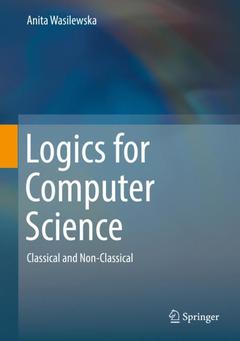Logics for Computer Science, 1st ed. 2018 Classical and Non-Classical

1: Introduction: Paradoxes and Puzzles.- 2: Introduction to Classical Logic.- 3: Propositional Semantics: Classical and Many Valued.- 4: General Proof Systems: Syntax and Semantics.- 5: Hilbert Proof Systems: Deduction and Completeness Theorems for Classical Propositional Logic.- 6: Automated Proof Systems.- 7: Introduction to Intuitionistic and Modal Logics.- 8: Classical Predicate Semantics and Proof Systems.- 9: Completeness and Deduction Theorems for Classical Predicate Logic.- 10: Predicate Automated Proof Systems.- 11: Formal Theories and Godel Theorems.
Date de parution : 11-2018
Ouvrage de 535 p.
17.8x25.4 cm
Thème de Logics for Computer Science :
Mots-clés :
Symbolic logic; propositional languages; predicate languages; classical semantics; non-classical semantics; intuitionistic logic; modal logics; Hilbert style formalizations; Gentzen style formalizations; automated theorem proving; Formal methods; completeness theorem; Godel Theorems; many-valued logics; Boolean algebras



